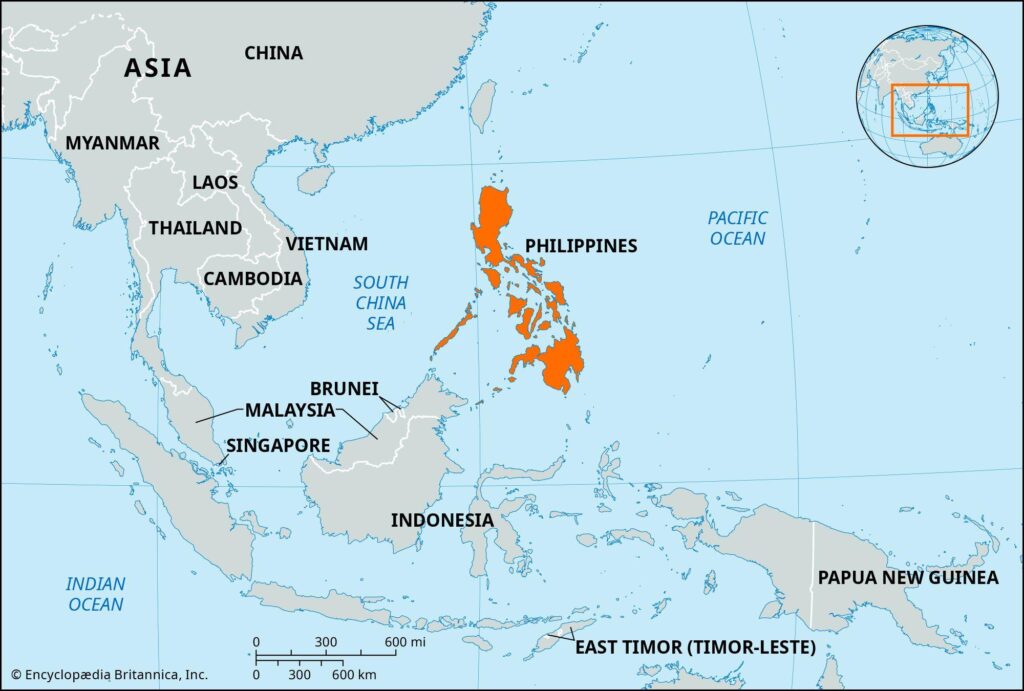In a move that has ignited tensions in the South China Sea, the Philippines has formally protested China’s recent announcement to establish a ‘nature reserve’ at Scarborough Shoal, a strategically important area claimed by both nations. The Philippine government has voiced concerns over China’s intentions, asserting that the proposed development infringes on the country’s sovereignty and threatens the marine resources vital to the livelihoods of local fishermen. As the dispute unfolds, the implications of this announcement extend beyond regional diplomacy, raising questions about environmental governance and the ongoing struggle for control over contested waters. This article delves into the reactions and ramifications of the Philippines’ stance, analyzing the broader geopolitical landscape surrounding this contentious issue.
Philippines Rejects China’s Nature Reserve Plan at Scarborough Amid National Sovereignty Concerns
The Philippine government has expressed strong opposition to China’s recent proposal to establish a nature reserve at Scarborough Shoal, a contested area in the South China Sea. Officials raised concerns that such a move would undermine national sovereignty and escalate tensions in the region. Scarborough Shoal, known for its rich marine biodiversity, has long been a flashpoint in the maritime disputes between the two countries, with both claiming sovereignty over the area. The Philippines views the nature reserve plan as a thinly veiled attempt to assert Chinese control over the territory, which has significant implications for fishing rights and environmental conservation in surrounding waters.
In response to China’s announcement, various stakeholders, including local fishermen and environmental groups, have voiced their apprehensions about the consequences of such a development. Key points of contention include:
- Impact on Local Fishing Communities: Fishermen fear restricted access to traditional fishing grounds.
- Environmental Concerns: Potential damage to marine ecosystems amidst rising tensions.
- Sovereignty Issues: Any unilateral action by China would be viewed as illegal by the Philippines.
Future diplomatic discussions are expected, as both nations navigate this sensitive issue that intersects national interest and regional stability.
Local Fishermen Voice Fears Over Economic Impact and Environmental Degradation
Local fishermen have raised significant concerns regarding the proposed plan by China to establish a so-called “nature reserve” at Scarborough Shoal. They fear that such a development could severely impact their livelihoods, which have already been strained by ongoing territorial disputes. Many fishers rely on this crucial fishing ground for their daily catch, and they worry that increased restrictions and potential mismanagement could lead to diminished fish stocks and reduced access to traditional fishing routes. This situation poses a direct threat not only to their economic stability but also to the sustenance of their families and communities.
Environmental activists and marine scientists echo these concerns, emphasizing the potential for drastic ecological consequences. The delicate marine ecosystem of Scarborough Shoal, known for its rich biodiversity, risks suffering from unchecked industrial activities and habitat destruction. The fishermen call for a united stance against the plan, as they highlight the following key issues:
- Loss of livelihood: Increased regulation of fishing could mean less income for local families.
- Ecological disruption: Construction and development may harm the marine habitat.
- Food security: A decline in fish stocks would have broader implications for food availability in the region.
Calls for Strengthened Maritime Policies and International Support to Safeguard Territorial Rights
The Philippine government has raised serious concerns over China’s intentions to establish a ‘nature reserve’ at Scarborough Shoal, a contentious area claimed by both nations. Analysts argue that this development reflects a broader trend of escalating territorial disputes in the South China Sea, necessitating stronger maritime policies from the Philippines and enhanced diplomatic support from the international community. It is increasingly evident that regional stability hinges on collaborative efforts to uphold maritime laws and safeguard sovereignty, encouraging transparent communication and mutual respect among neighboring nations.
In light of this situation, the Philippines calls for a multi-faceted approach to address territorial encroachments. Key measures should include:
- Enhanced diplomatic negotiations: Philippines should engage in continuous dialogue with China and other claimants to ensure peaceful resolutions.
- International maritime alliances: Strengthening partnerships with like-minded nations to monitor and safeguard territorial waters.
- Increased naval capabilities: Investing in coast guard and naval infrastructure to uphold defensive measures.
- Public Awareness Campaigns: Informing citizens about maritime rights and the importance of territorial integrity.
| Measure | Description |
|---|---|
| Diplomatic Negotiations | Engaging in talks to reach a peaceful resolution regarding territorial claims. |
| International Alliances | Forming partnerships to collectively address maritime security concerns. |
| Naval Enhancements | Improving coastal defense through better-equipped naval forces. |
| Public Campaigns | Educating the populace about maritime rights and sovereignty. |
Final Thoughts
As tensions simmer in the South China Sea, the Philippines remains steadfast in its defense of national sovereignty and environmental integrity. The proposed establishment of a “nature reserve” by China at Scarborough Shoal has drawn sharp criticism from Filipino officials and the public alike, reflecting broader concerns about territorial rights and the preservation of marine ecosystems. As protests unfold, the Philippine government continues to seek international support to navigate this complex geopolitical landscape. The outcome of this situation may not only affect the immediate region but could also have lasting implications for global maritime laws and cooperation in preserving the world’s oceans. Analysts suggest that vigilance and advocacy for transparency will be crucial as this narrative develops. With the stakes high, all eyes will be on both Manila and Beijing in the coming weeks.
